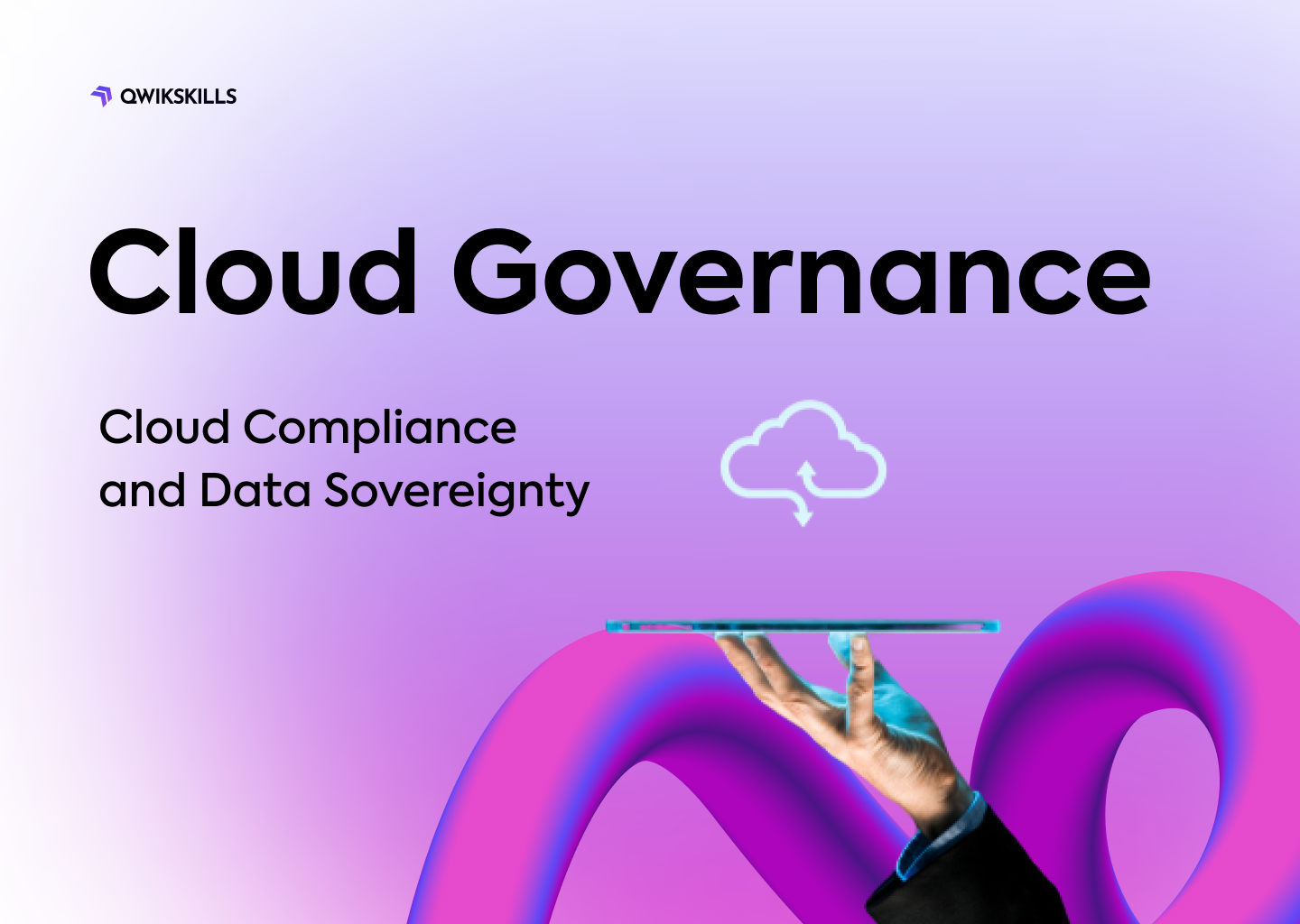In recent years, a significant number of businesses have shifted their infrastructure and services to the cloud for its numerous benefits, such as scalability, flexibility, and cost-effectiveness. But while enjoying these advantages, it’s also crucial to address the challenges that come with it. Two key concepts that are pivotal in this context are cloud governance and cloud compliance.
Overview of Cloud Governance
Cloud governance refers to the control mechanism that ensures management and governance of cloud-based services and infrastructure. It’s a set of guidelines, rules, or policies that an organization follows or adheres to for efficient cloud management. The guidelines might cover aspects such as:
- Resource deployment
- Security measures
- Cost management
- Performance monitoring
Importance of Cloud Compliance and Data Sovereignty
Cloud compliance, on the other hand, involves ensuring that the organization’s use of the cloud aligns with regulatory standards like GDPR, HIPAA, etc. Similarly, data sovereignty is related to the laws of the country where data is stored. This is more crucial in this age of global businesses, where data crosses borders fluidly.
Compliance with these crucial factors is pivotal in maintaining not just legalities but also trust with clients and users, ultimately contributing to the success of any cloud deployment.
Understanding Cloud Compliance
Definition of Cloud Compliance
Cloud Compliance is all about ensuring your use of cloud-based services follows the laws, regulations, and your industry’s rules. This involves sticking to data protection laws, guidelines for handling data in different areas, and privacy regulations. Doing this not only safeguards your business and clients but also boosts digital trust and confidence.
Key Regulations and Standards for Cloud Compliance
Cloud compliance varies greatly depending on your specific industry and the region in which you operate. Some of the key regulations and standards you might come across include:
– GDPR (General Data Protection Regulation)
– CCPA (California Consumer Privacy Act)
– HIPAA (Health Insurance Portability and Accountability Act)
– ISO 27001, a global security standard
Cloud service providers often offer tools and features to help businesses comply with these regulations. For instance, AWS and Azure provide extensive resources to help ensure GDPR compliance.
Challenges in Achieving Cloud Compliance
While cloud compliance is unquestionably vital, achieving it is not without challenges. For one, the regulations are often complicated and can differ from one jurisdiction to another. This makes the road to compliance difficult to navigate for many businesses.
Aside from the complex regulations, it’s also crucial to consider how data is stored and managed. Data sovereignty – that is, knowing precisely where and how your data is stored in the cloud – can have immense implications on compliance.
Data Sovereignty in the Cloud
In an era where data is the new currency, managing and safeguarding data in the cloud has become critical for businesses. One particular component that plays a crucial role in cloud governance is data sovereignty.
What is Data Sovereignty?
Data sovereignty refers to the concept that digital data is subject to the laws of the nation within which it is stored. It implies that the data stored in, say, the United States is governed by US laws, even if the company that owns the information is based in another country. This concept is fundamental in the realm of cloud computing as data can be stored in servers across different nations.
Importance of Data Sovereignty in Cloud Governance
Data sovereignty is paramount in effective cloud governance for various reasons:
- It ensures adherence to regional and local laws of the country where data is hosted.
- It allows businesses to maintain control and authority over their data.
- It plays a critical role in protecting sensitive information.
Legal and Privacy Implications of Data Sovereignty
Grasping data sovereignty is vital due to its legal and privacy consequences. Non-adherence can lead to large fines and reputation damage. Strict guidelines from privacy laws like GDPR and CCPA apply even to cloud-stored data. Hence, businesses ought to know where their data is stored and ensure compliance.
Effective Security Measures for Cloud Governance
In the digital era, data protection is essential for businesses, particularly in cloud environments. Key elements for effective cloud governance include strong access controls, data protection methods, and frequent security checks.
Implementing Robust Access Controls and Authentication Protocols
Access controls are integral to maintaining the security of your cloud infrastructure. To effectively govern your cloud environment, it’s vital to:
- Limit access to sensitive data
- Enforce complex passwords
- Implement multi-factor authentication
Encryption and Data Protection Strategies for Cloud Environments
Data stored in the cloud needs to be protected, even if it falls into the wrong hands. This protection can be achieved through encryption, which transforms data into an unreadable format unless deciphered with a specific key. Other data protection strategies can include:
- Using secure backup solutions
- Implementing disaster recovery plans
- Regularly patching and updating system software
Continuous Monitoring and Compliance Assurance
Understanding the dynamics of cloud computing requires a comprehensive approach towards continuous monitoring and compliance assurance. With businesses and organizations increasingly shifting towards the convenience of cloud storage and operations, recognizing the pillars of cloud governance and mastering them can dramatically enhance visibility over your data landscape.
Importance of continuous monitoring for cloud governance
Continuous monitoring provides real-time information about your cloud environment’s ongoing operations. This includes understanding the system’s vulnerability to potential cyber threats, fluctuations in data flow, and the overall integrity of cloud operations. With today’s razor-thin margins for error, any detected anomalies should be identified and rectified promptly, enhancing the overall data sovereignty.
- Observe system dynamics and detect anomalies
- Increases data sovereignty
- Enhances visibility and control over cloud operations
Automating Compliance Workflows and Reporting
Using automation simplifies the intricate process of upkeeping regulatory responsibilities. Companies frequently use cloud providers such as AWS and Azure for their dependable services in automating tasks. Regular reports can hence enhance control and awareness of ongoing and emerging compliance requirements.
- Eases the process of maintaining regulatory obligations
- Facilitates regular reporting
- Augments cloud compliance
Proactive Incident Response and Remediation
Proactively identifying and addressing potential incidents can dramatically reduce the damage caused by any security breach. Immediate remediation strategies that act on real-time information gathered from continuous monitoring help maintain a fortified cloud environment.
- Decreases potential damages of security breaches
- Encourages immediate action on real-time information
- Supports a secure cloud environment.
Conclusion
Understanding cloud compliance and data sovereignty has highlighted their key role in cloud governance. The heart of services like AWS and Azure is securing data. Good governance strategies not only shield sensitive data but also maintain an organization’s compliance with ever-changing regional and national regulations. Overlooking data sovereignty could bring legal issues and lack of cloud compliance might cause security breaches.
Join QwikSkills’ courses to boost your knowledge, safeguard sensitive data, and push your cloud career further. Be the master of your cloud operations with QwikSkills today.




